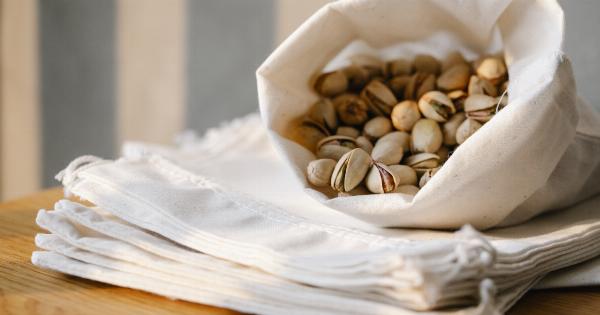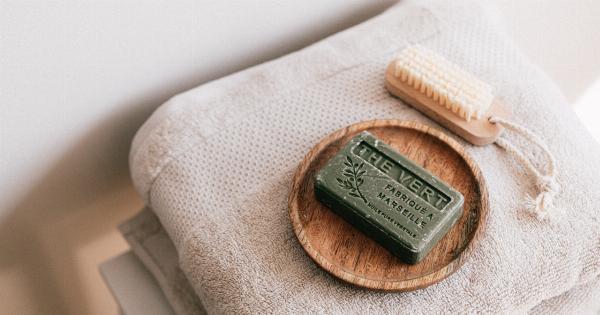Gout is a form of arthritis that occurs when there is an excess buildup of uric acid in the body, leading to the formation of urate crystals in the joints. These crystals cause severe pain and inflammation, often in the big toe.
While medication can help manage gout, making certain dietary changes can also play a significant role in preventing gout attacks. In this article, we will discuss ten dos and don’ts when it comes to preventing gout through your diet.
Do: Stay Hydrated
One of the key elements in preventing gout attacks is to stay well-hydrated. Drinking enough water throughout the day helps to dilute uric acid and promote its excretion through urine.
Aim to drink at least 8-10 glasses of water per day to maintain optimal hydration.
Do: Include Low-Fat Dairy Products
Low-fat dairy products such as milk, yogurt, and cheese are excellent choices for gout prevention. These foods are rich in dairy proteins that have been shown to reduce the risk of developing gout.
Additionally, consuming low-fat dairy products can help lower the levels of uric acid in the blood.
Do: Focus on Complex Carbohydrates
When choosing carbohydrates, opt for complex ones like whole grains, legumes, and vegetables. These foods have a lower glycemic index compared to refined carbohydrates and can help regulate blood sugar levels.
High blood sugar and insulin resistance have been linked to higher uric acid levels, so it’s important to choose complex carbohydrates for gout prevention.
Do: Consume Cherries and Berries
Cherries and berries contain compounds that may help reduce inflammation and lower uric acid levels. Consuming these fruits regularly has been associated with a decreased risk of gout attacks.
You can enjoy fresh cherries and berries as a snack or incorporate them into your meals and smoothies.
Do: Include Plant-Based Proteins
While proteins are an essential part of a balanced diet, it’s important to choose wisely if you’re prone to gout.
Opt for plant-based protein sources such as legumes, tofu, and tempeh, instead of animal-based proteins like red meat and seafood. Plant-based proteins are lower in purines, which are broken down into uric acid in the body.
Don’t: Consume High-Purine Foods
It’s crucial to avoid or limit high-purine foods to prevent gout attacks. Purines are naturally occurring compounds that contribute to the production of uric acid in the body.
Foods high in purines include organ meats (liver, kidney), seafood (anchovies, sardines, mussels), and certain meats (bacon, veal). Limiting your intake of these foods can help keep uric acid levels in check.
Don’t: Consume Excessive Alcohol
Excessive alcohol consumption, especially beer and spirits, has been associated with an increased risk of gout. Alcohol raises uric acid levels in the body and impairs its excretion.
If you have gout or are at risk, it’s advisable to limit your alcohol intake or avoid it altogether.
Don’t: Drink Sugary Beverages
Sugary beverages like soda and fruit juices have been linked to higher uric acid levels and an increased risk of gout. These drinks contain high levels of fructose, which can lead to the production of uric acid.
Opt for water or herbal teas instead to quench your thirst and decrease the likelihood of gout attacks.
Don’t: Indulge in Excessive Protein Intake
While protein is necessary for overall health, excessive protein intake, especially from animal sources, can raise uric acid levels. It’s recommended to consume protein within the recommended daily allowances and avoid overconsumption.
Don’t: Crash Diet or Rapid Weight Loss
Rapid weight loss or crash diets that severely restrict calories can trigger gout attacks. When the body breaks down fat, it releases more uric acid, increasing the risk of gout.
If you’re aiming to lose weight, do so gradually through a balanced diet and regular exercise.
Conclusion
Preventing gout attacks through dietary modifications is crucial for managing this painful condition. By following the dos and don’ts mentioned above, you can effectively reduce the risk of gout and improve your overall health.
Remember to stay hydrated, include low-fat dairy and complex carbohydrates, consume cherries and berries, opt for plant-based proteins, while avoiding high-purine foods, excessive alcohol, sugary beverages, excessive protein intake, and crash diets. By making these changes, you can take control of your diet to prevent gout and lead a healthier, pain-free life.




























